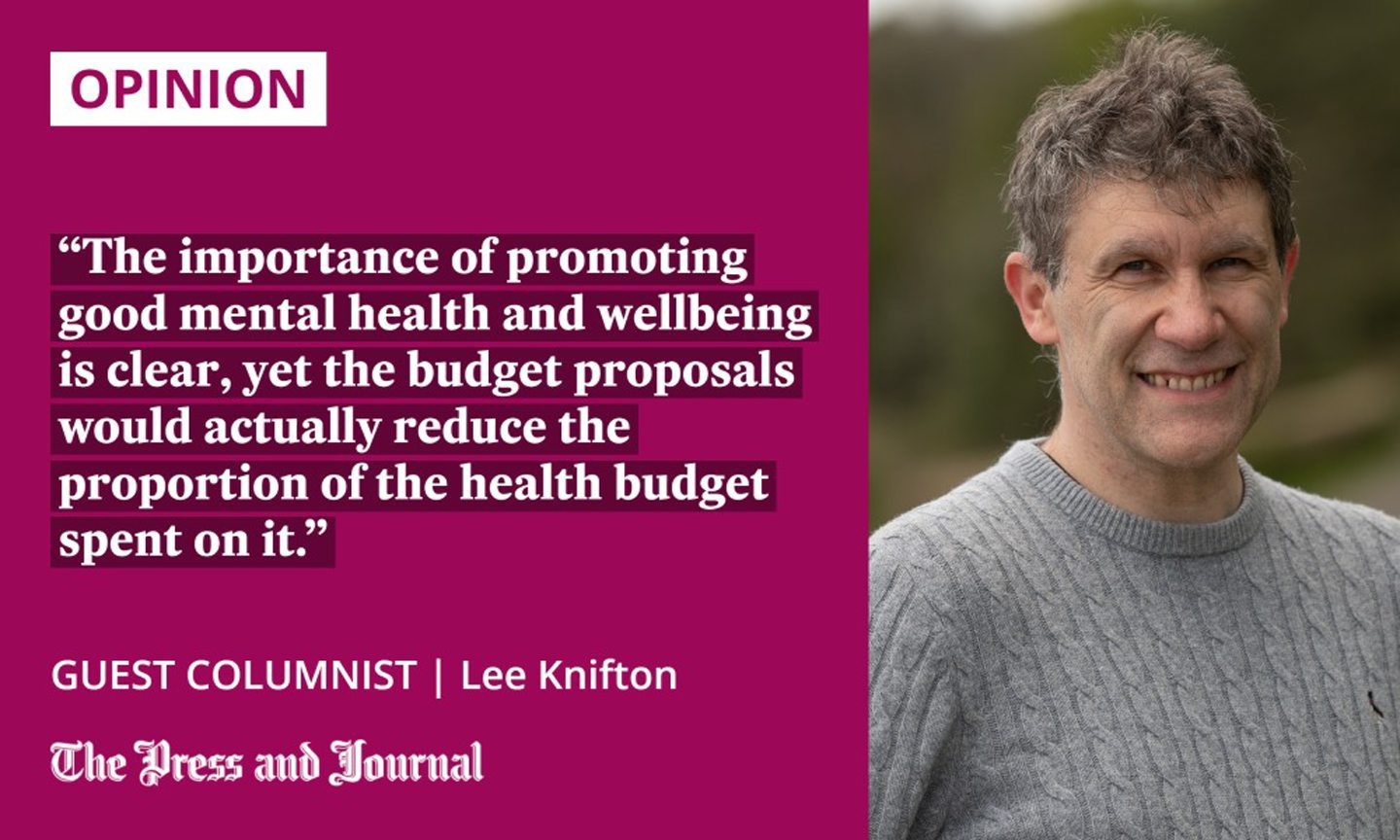As it stands, any Scottish Government mental wellbeing strategy is doomed to be immediately constrained by a lack of available investment, writes Lee Knifton, chair of Scotland’s Mental Health Partnership.
Scotland’s Mental Health Partnership has written to John Swinney MSP, deputy first minister, to call for an increase to the mental health services budget for 2023/24.
The partnership, made up of 17 national third sector organisations, has also contacted all MSPs, seeking their support.
The proposed budget was published by the deputy first minister in December 2022. It shows that the mental health services budget would be returned to the £290.2 million allocated in the current financial year – merely reversing a cut of £38 million made during the emergency budget review.
This would actually lead to a real-terms reduction in support for mental health at a time when demand is at an all-time high, and all services are under extreme pressure. High inflation, and particularly increased fuel costs, are adding stress for people living in remote and rural areas, who already face difficulties accessing support services, which can often involve lengthy journeys.

We are dismayed at this failure to increase the mental health budget. We are seeing people struggling with the cost-of-living crisis, leading to vastly increased numbers seeking support. Waiting lists are lengthy, and both statutory services and voluntary organisations are under extreme pressure.
The far-reaching effects of the Covid pandemic also showed a long-term impact on mental health. The importance of promoting good mental health and wellbeing is clear, yet the budget proposals would actually reduce the proportion of the health budget spent on it.
We are calling on the Scottish Government to reconsider, and to increase the mental health budget by at least 6.2%, in line with overall health and social care spending. If this doesn’t happen, mental health will fall further behind, leading to severe consequences for the people of Scotland.
Budget for mental health has not been increased
A recent Scottish Government report, The Cost of Living Crisis in Scotland, noted that the crisis is negatively affecting mental health and driving up demand for services. An immediate need for more support was identified.
The report also cites government polling from September 2022, showing that almost half of adults felt that their mental health had been affected by the crisis. This figure reached 59% in low-income households, and 82% in very insecure households.
It is good to see a headline 6.2% increase in the health and social care budget, but extremely concerning that the allocation to mental health has not been increased.
Today we've published ‘Mental Health and the Cost-of-Living Crisis: Another pandemic in the making?’ with recommendations for governments across the UK to address the cost-of-living crisis and prevent poor mental health. [1/3] https://t.co/DiUHYFVnNA
— Mental Health Foundation (@mentalhealth) January 17, 2023
The Scottish Government plans to publish a new mental health and wellbeing strategy in spring 2023. Discussions with government officials suggest this will be ambitious and forward-looking, containing commitments to mental health promotion and prevention activities, as well as the provision of high quality mental health services.
Scotland’s Mental Health Partnership is now extremely concerned that the ability to deliver on this new strategy will immediately be constrained by a lack of available investment.
Lee Knifton is chair of Scotland’s Mental Health Partnership

Conversation